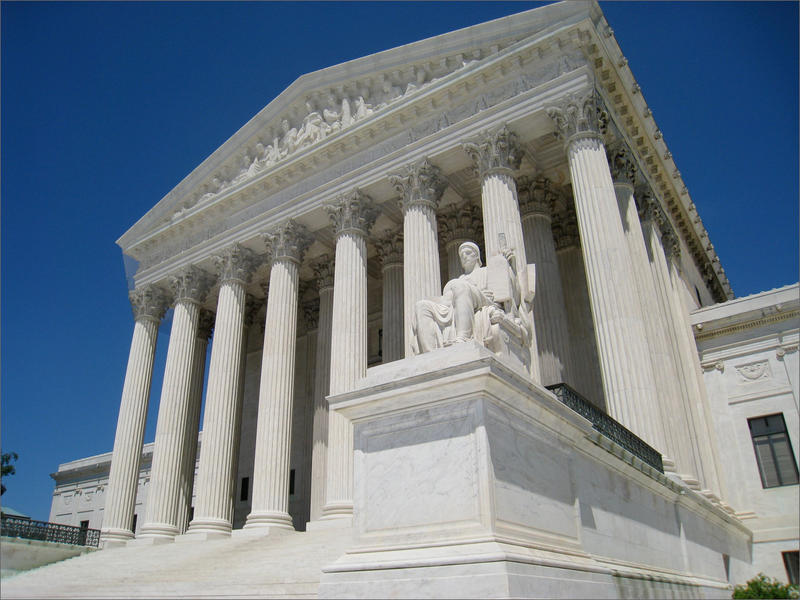
U.S. Supreme Court Hears Yakama Nation Tax Case; Tribe’s Chairman Denied Entry Over Regalia
Read On
The U.S. Supreme Court heard arguments Tuesday in a five-year-old case that questions the rights outlined in an 1855 treaty between the United States and Washington’s Yakama Nation.
Yakama Tribal Chairman JoDe Goudy says his tribe agreed to give up a swath of land larger than the state of Maryland when they signed the treaty. “We gave up the vastness of that land base for the reserved rights in order to, in this case, conduct trade and our commerce,” he said. Goudy said that in exchange for the land, tribal members could travel freely on public highways. That travel clause is unique to the Yakama Nation’s treaty, and attorneys for the tribe say it also applies to goods brought to market on public highways.
Last spring, Washington state’s Supreme Court agreed. In 2013, Washington’s Department of Licensing demanded $3.6 million from Kip Ramsey, the owner and President of the Cougar Den, a gas station in White Swan on the Yakama Reservation. The state argued Ramsey was not allowed to transport gas from Oregon to the reservation without paying taxes.
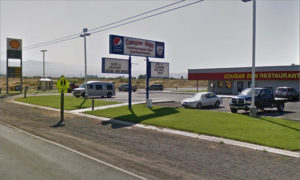
The Cougar Den gas station in White Swan is at the center of the U.S. Supreme Court case with the Washington State Department of Transportation. CREDIT: GOOGLE MAPS
The main question now is whether tribal members should be taxed by the state, if the gas is sold on the Yakama Reservation, which is sovereign under federal law. Solicitor General Noah Purcell argued before the court on behalf of Washington’s Department of Licensing. “Washington’s fuel tax taxes fuel, not highway travel,” he said, according to transcripts. “The tax is non-discriminatory and its incidence is off-reservation, so it applies to Cougar Den unless preempted by express federal law,” argued Purcell.
But on behalf of the tribe, Adam Unikowksy explained that the Yakama Treaty exempts tribal members from taxes for two reasons. First, in transporting fuel, tribal members would be exercising their right to travel, which was secured by their treaty in 1855. Second, the tax itself, as described in Washington law, is on the transportation of the fuel, not the fuel itself. Justice Elena Kagan seemed to understand Unikowsky’s arguments.
JUSTICE KAGAN: It does seem to me that from the Yakama’s point of view, and they’re, after all the people who entered into the treaty, from the Yakama’s point of view, this tax is burdening exactly what they bargained to get, which is the ability to transport their goods without any burdens, without a tax.
But Chief Justice John Roberts had questions about who was transporting the fuel and who owned the fuel and whether or not that influenced who was subject to taxation.
Notably, recently confirmed Justice Brett Kavanaugh also weighed in. This was Kavanaugh’s first case involving a Native American tribe since his appointment last month. Documents released during his Senate confirmation show Kavanaugh’s publicly questioned the indigenous status of Native Hawaiians. That raised eyebrows in Indian Country and beyond. In the case of the Cougar Den, an exchange between Solicitor General Purcell and Justice Kavanaugh showed Kavanaugh understood the Yakama’s argument.
JUSTICE KAVANAUGH: But they were told at the time of the treaty that you could go on the roads to take your things to market, as if you would be treated off-reservation, as if you were still on the reservation. MR.
PURCELL: The first part they were told, Your Honor. The second part they were not. That is a misquote that the other side is using from the — the — the –
JUSTICE KAVANAUGH: But the effect – -the effect was that, in taking your goods to market, which was the promise, in exchange for a huge area of land, an area uld take yourof land the size of the state of Maryland that was given up by the tribe, that you co goods to market.
For Yakama Chairman JoDe Goudy the day was both frustrating and liberating. “Well, I’m always hopeful, but there is never really a time where we are seeing and feeling peace amongst us Native people and Native nations,” he said.
He pointed out that the treaty signed 163 years ago between the U.S. and the Yakama Nation was a peace treaty. “We were at war, at the time,” Goudy said.
Denied Entry Over Headdress
Goudy wasn’t able to watch the proceedings from inside the Supreme Court. He was denied entry to the court Tuesday. He almost always dons his traditional regalia with purpose for important occasions, and a visit to the highest court in the U.S. is no exception.
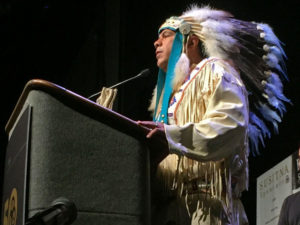
Yakama Chairman, JoDe Goudy in 2016.
CREDIT: EMILY SCHWING/N3
But diplomacy didn’t seem to sway a security guard outside the Supreme Court.
“So, the court is not to be subject to outside influence… the headdress itself will not be allowed inside the courtroom…” said a security guard, in a video posted by Goudy to social media.
The guard told Goudy there were “decorum issues in the courtroom” and his headdress could obstruct the view for others. Chairman Goudy called the experience “dehumanizing.”
“I wouldn’t say it was an outright show of disrespect,” he said. “I think there is probably some misinterpretation and misunderstanding with regard to what our traditional attire and regalia means to us, what it would mean to a person who wears a headdress to essentially ask them to remove it,” Goudy said.
Arguments inside the courtroom lasted for one hour. Justices will meet privately at the end of the week to discuss and vote on how to decide the case.
Related Stories:
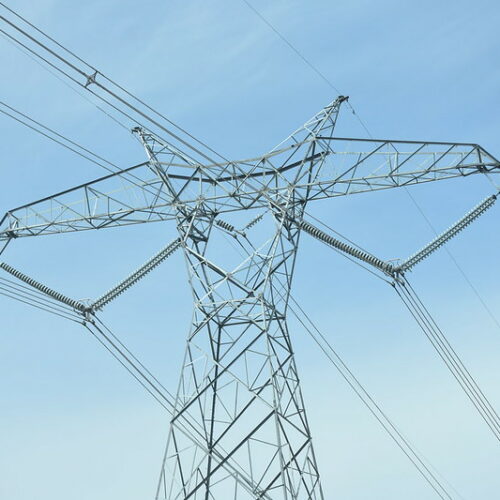
Yakama Power looks to alternative energy storage projects
A transmission line silhouetted by blue sky. The Yakama Nation is planning a new sort of battery, called advanced rail energy storage. (Credit: Austin Taylor / Flickr Creative Commons) Listen
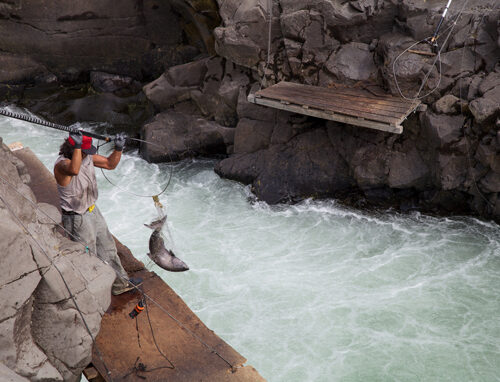
Fish hatchery transferred to Yakama Nation, upgrades underway
Yakama Nation tribal members fish in the Klickitat River for fall chinook salmon. The Yakama Nation recently gained ownership of a fish hatchery on the river. (Credit: USFWS – Pacific
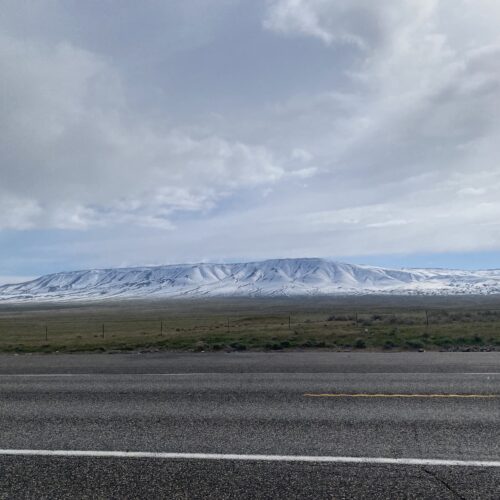
Hanford safety officer hired on by Yakama Nation
Rattlesnake Mountain on the Hanford site in 2022. The mountain is sacred to the Yakama Nation and other Northwest Indigenous tribes and bands near the Hanford site. (Credit: Anna King















